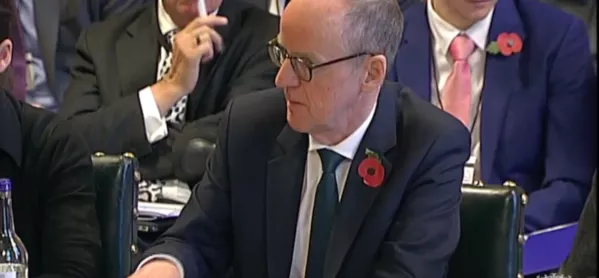Academics today told the Commons education selection committee that they were sceptical about whether the government’s plans to increase the number of grammar schools will increase social mobility.
Nick Gibb, minister for school standards, admitted that the evidence about existing grammar schools is “mixed”, but stressed that the latest proposals are for a new type of system, which will force selective schools to support non-selective schools.
Here are six highlights from the committee’s “evidence check” on the plans, which are currently under consultation.
1. Social mobility
The four academics cited evidence suggesting that grammar schools are not currently good for social mobility.
They referred to statistics showing that, currently, an average of 2.5 per cent of pupils at grammar schools are entitled to free school meals, compared with an average of 9 per cent of the school population in the same areas.
Rebecca Allen, director of Education Datalab, said the Schools of King Edward VI in Birmingham had set a target of 20 per cent of pupils being entitled to the pupil premium, and had succeeded within a year or two. However, she added that in the local population, 50 per cent of children were entitled to the pupil premium.
Mr Gibb said there would be strict conditions on new or expanded grammar schools to ensure they take in enough disadvantaged children, or supported local non-selective schools.
And Donna Ward, chief analyst at the Department for Education, said it would carry out research on the effects of more widespread selection, including the diversity of intake and the impact on nearby schools.
2. Selection at 11?
MPs quizzed the witnesses about the merits of selecting children at the age of 11, with Dr Allen quoting research showing that children’s brains are malleable, and saying that the notion we can measure future academic achievement is not meaningful.
Dr Allen said selection at 14 would be better than at 11 - if only because it would delay the damage she said selection causes. But she warned that selection could actually put children from a disadvantaged background at a further disadvantage.
3. ‘Tutor-proof’ tests
There was significant scepticism about whether it was possible to create a tutor-proof test, which could remove the advantage for children from better-off families who can afford private tutoring.
Asked whether it was possible to produce a tutor-proof test, Mr Gibb said: “That would be the holy grail, and grammar schools are trying to do that.”
Asked whether it was possible to create a test that could assess potential rather than prior achievement, he said: “That is the objective. That is something we are consulting on. We want to receive evidence from specialists in this area. But it is not the only factor that is preventing children from disadvantaged backgrounds going to grammar school.”
Academics warned that a so-called tutor-proof test could actually widen the gap between the children from disadvantaged backgrounds and their peers, because wealthier parents would be better equipped than poorer ones to prepare their children for a much wider range of possible test material.
4. A zero-sum game?
Anna Vignoles, professor of education at the University of Cambridge, said schools near newly selective schools would lose out on the most able pupils, and find it harder to recruit good teachers.
However, Ms Ward, of the DfE, denied that the policy would be a zero-sum game. She said creating the right incentives to provide new and outstanding places and harness the expertise already out there can increase the total amount of expertise and leadership skills in the system.
5. No target for number of new grammar schools
Asked how many new grammar schools he wanted to see by 2020, Mr Gibb said the government did not have a number in mind.
He repeatedly stressed that new grammar schools would only come where there was demand from the local community.
Ms Ward said the policy was particularly aimed at areas that currently have no “good” or “outstanding” schools, and currently do not have selection.
6. “Requires improvement”
Wrapping up the session, the committee’s chairman, Neil Carmichael, asked the DfE’s top adviser, Dr Tim Leunig, to give the government’s grammar schools plans an Ofsted-style rating.
Diplomatically, he quoted a headteacher who told him that “all schools require improvement and the moment we think we don’t require improvement we are doomed”.
He added: “This policy, like all policy, requires improvement. That’s why there’s a consultation document. That’s why we will look at the evidence and hopefully we will deliver the improvement we need.”
Want to keep up with the latest education news and opinion? Follow TES on Twitter and like TES on Facebook




